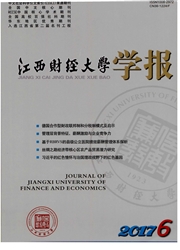

 中文摘要:
中文摘要:
利用2000-2012年中国30个省份的面板数据,实证研究了新型城镇化和制度变迁对居民消费增长的影响。结果表明:新型城镇化始终对居民消费增长具有显著的正向促进作用,而三种制度(土地、户籍和社会保障)变迁的作用并不明显甚至还存在阻碍作用;进一步利用滞后模型分析发现土地制度变迁的滞后作用明显,而户籍和社会保障制度变迁的滞后作用为正但并不显著;通过考察新型城镇化与三种制度变迁对居民消费增长的综合效应,得到的结果与理论预期有较大差距,可见当前的三种制度已成为阻碍新型城镇化发展与居民消费增长的瓶颈因素。因此,若要不折不扣地实施新型城镇化战略,发挥其刺激内需与推动消费增长的引擎作用,则土地制度、户籍制度和社会保障制度的创新就显得尤为必要而紧迫。
 英文摘要:
英文摘要:
By making use of the panel data of China' s 30 provinces from 2000 to 2012, this paper conducts an empirical study of the effect of new urbanization and system changes on household consumption growth. The results show that the new urbanization has always had significant positive effect on household consumption growth, while the three system changes(including land, household registration and social security) have no obvious effect; instead, they are even playing a role of blocking. Further analysis with a lag model shows that changes of land system have a significant lag-behind effect, while the lag-behind effect of the changes of household registration and social security system is positive but not significant. There is a larger gap between the theoretical expectation and the result of the exploration of the combined effect of new urbanization and the changes of the three systems on the household consumption growth. As you can see, the present three systems have become a bottleneck to new urbanization development and household consumption growth. Therefore, in order to implement the new urbanization strategy out-and-out and give full play to its role of growth engine to stimulate domestic demand and promote household consumption growth, it is necessary and urgent to innovate the land system, the household registration system and the social security system.
 同期刊论文项目
同期刊论文项目
 同项目期刊论文
同项目期刊论文
 期刊信息
期刊信息
